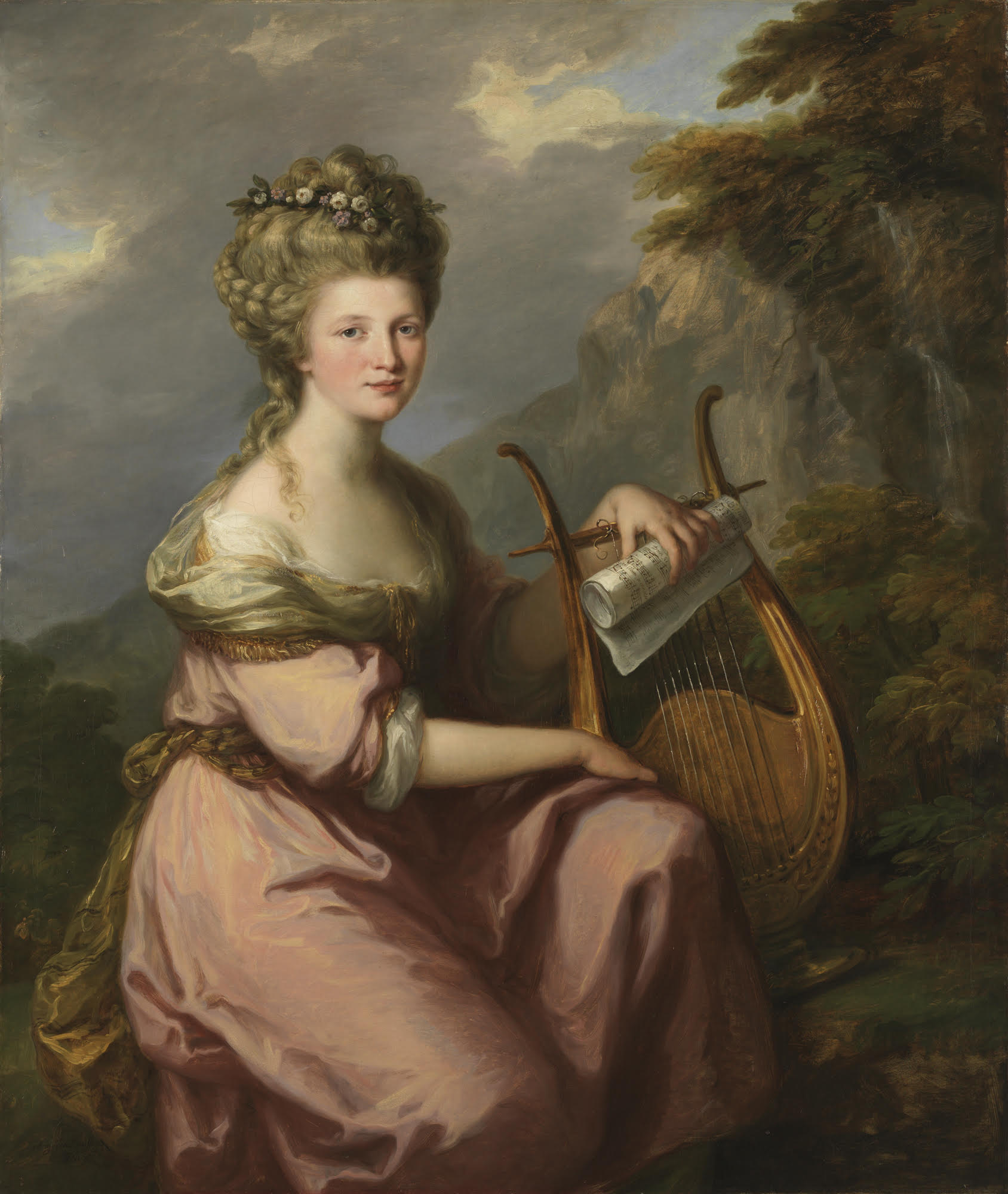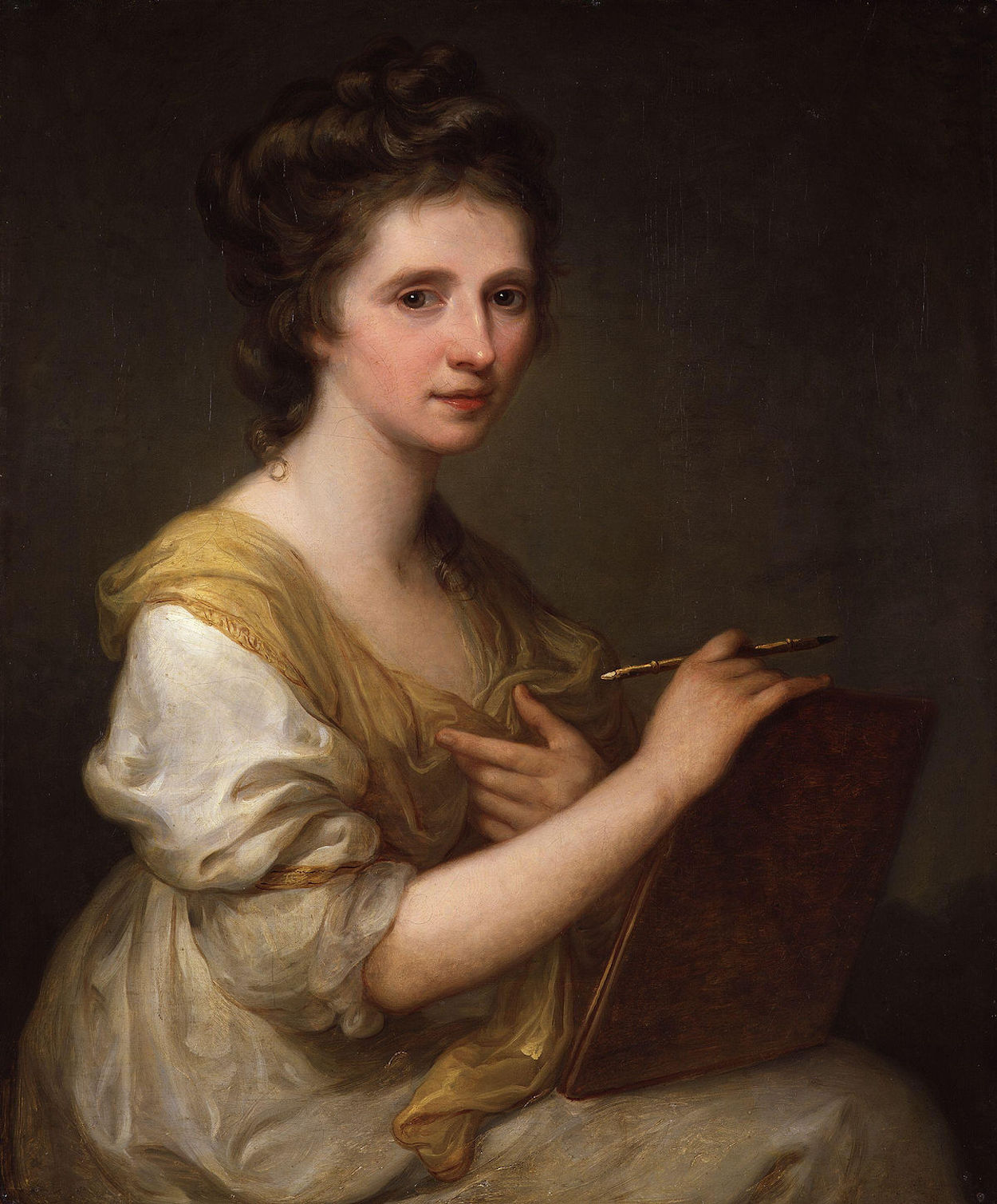Angelica Kauffman’s portrait of the renowned singer Sarah Harrop (Mrs. Bates), arguably the artist’s masterpiece in portraiture, is a rare representation of a self-made woman, the great Handelian performer Sarah Harrop (1755–1811), by one of the very few professional women artists of the period. Kauffmann, one of two female cofounders of Britain’s Royal Academy, shows Harrop seated in the wilderness, a lyre at her side and a rolled sheet of music in her hand. The mountain, Mount Parnassos, is the home of the Muses, and the waterfall issues from the Hippocrene spring. The lyre most likely identifies Erato, the Muse of lyric poetry, and while the instrument is based on ancient types, the sheet music grounds the portrait in the eighteenth century, for it is recognizably an aria from George Frideric Handel’s opera Rodelinda, Queen of the Lombards (1725).
The picture, first exhibited at the Royal Academy in 1781, dates from around the time of Harrop’s marriage in 1780, a marriage to which she brought a substantial personal fortune made through her talents as a performer. The music hints at a personal meaning. The aria Dove sei, l’amato bene is sung not by Rodelinda but by her husband, whose longing words must have been chosen specifically for their personal significance in what was almost certainly a marriage portrait.
Analogously, Harrop's husband was a musician of modest origins and a promoter of Handel’s works, while Harrop herself was a celebrated interpreter of the composer’s operas and oratorios. That Kauffmann the artist was also married at about this time, and also to a fellow artist of more pedestrian talents, Antonio Zucchi, only deepens the aria's resonance.
- Clinton Pittman


 Angelica Kauffman
Angelica Kauffman